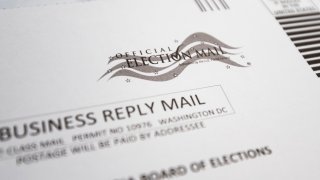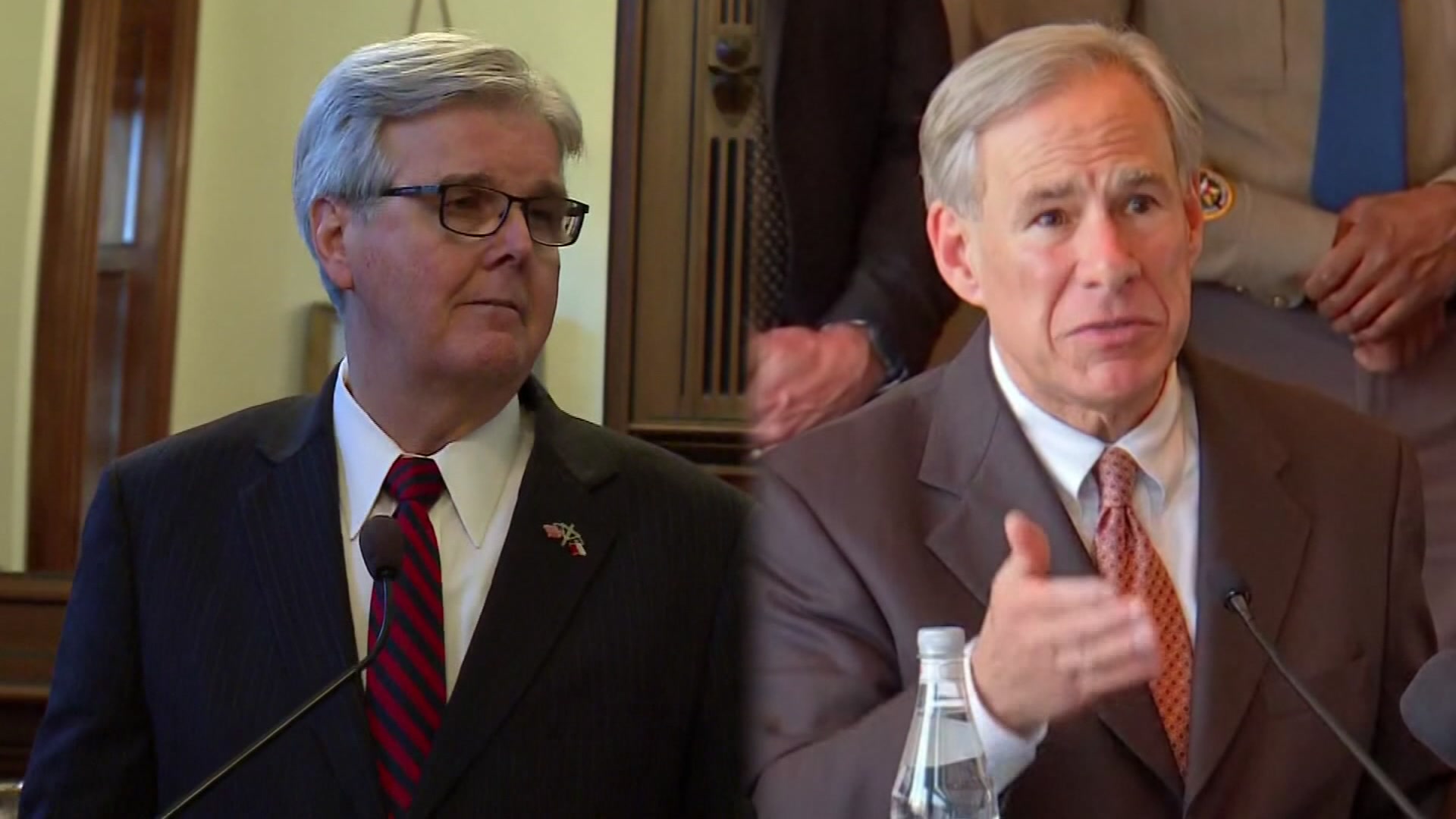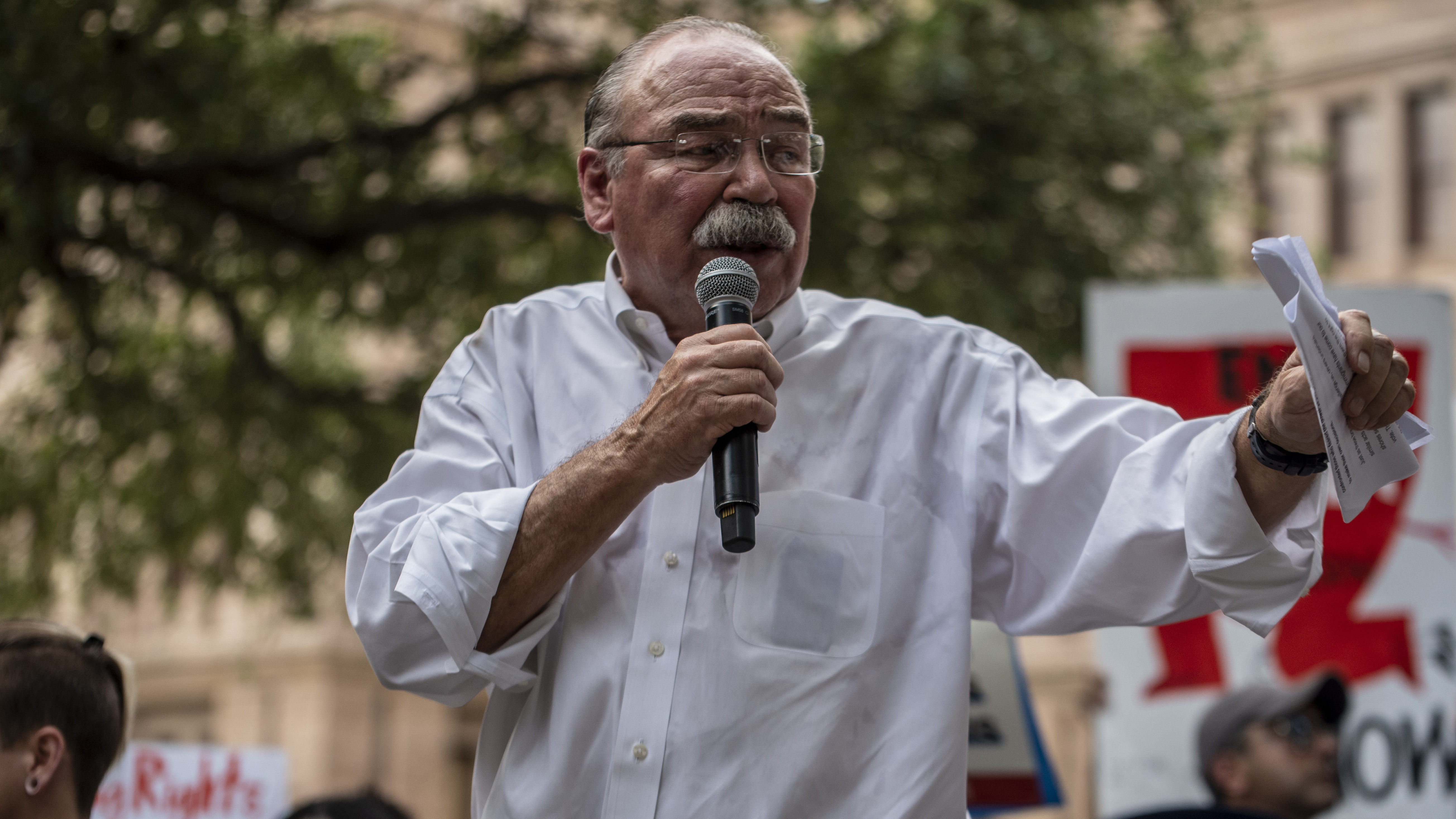
The most populous county in Texas can move forward with plans to send all registered voters a mail-in ballot application for the November general election, a state judge ruled Friday.
The ruling comes a week after Texas Attorney General Ken Paxton, a Republican, sued Harris County Clerk Chris Hollins to stop his office from sending mail-in ballot applications to all 2.4 million Houston area voters. The county announced earlier this month that they planned to send registered voters an application, regardless of whether they qualify to vote by mail.
In Texas, mail-in ballots are generally restricted to voters who are 65 or older, disabled or will be outside the county on Election Day.
In a press conference Thursday, Hollins said he felt “confident” the judge would rule in his office’s favor and that the office always operated under the law. He said Harris County sent all registered voters age 65 and older a mail-in ballot application in June and 80,000 voters submitted their vote by mail during the delayed July 14 runoff election.
Earlier, a federal appeals court dealt a blow to vote-by-mail advocates in Texas.
A push by the state’s Democrats and some voters to allow mail balloting to increase safety during the COVID-19 pandemic had been upheld by a federal district judge. But a divided three-judge panel of the 5th U.S. Circuit Court of Appeals vacated that ruling late Thursday. Earlier this year, another 5th Circuit panel had blocked the ruling from taking effect.
The panel rejected an argument that the vote-by-mail statute in Texas discriminates on the basis of age. The argument was based on the law allowing people ages 65 and over to vote by mail, but not younger voters who don’t have a disability or other specified reason for absentee voting.
Texas News
News from around the state of Texas.
In response to the ruling, Paxton said in a statement that he was “pleased Fifth Circuit correctly upheld Texas’s vote-by-mail laws.”
“Allowing universal mail-in ballots, which are particularly vulnerable to fraud, would only lead to greater election fraud and disenfranchise lawful voters,” Paxton said.
Judge Leslie Southwick, writing for the majority, said failing to allow for absentee balloting does not amount to an abridgment of the right to vote under the 26th Amendment.
“Abridgment of the right to vote applies to laws that place a barrier or prerequisite to voting, or otherwise make it more difficult to vote, relative to the baseline,” wrote Southwick, who was nominated to the court by President George W. Bush. “On the other hand, a law that makes it easier for others to vote does not abridge any person’s right to vote for the purposes of the Twenty-Sixth Amendment.”
Judge Carolyn Dineen King, a nominee of President Jimmy Carter, sided with Southwick. Dissenting was Judge Carl Stewart, nominated by President Bill Clinton.
“The statute in question facially discriminates based on age, which in the context of the pandemic leads to dramatically different outcomes for different age groups,” Stewart wrote.



